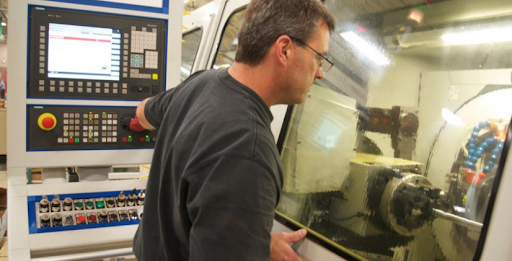Navigating the Career Path of a CNC Machine Operator: A Comprehensive Guide
In the dynamic landscape of manufacturing, Computer Numerical Control (CNC) machines stand as pillars of precision and efficiency. At the heart of every CNC operation is a skilled CNC machine operator, whose expertise ensures the seamless translation of digital designs into tangible products. For individuals aspiring to pursue a career in this field, understanding the career trajectory and opportunities available is paramount. In this CNC machining guide, we delve into the career map of a CNC machine operator, exploring the necessary skills, training, and advancement pathways.
Understanding the Role of a CNC Machine Operator:
A CNC machine operator is responsible for the setup, operation, and maintenance of CNC machinery. These machines utilize computer programs to automate the manufacturing process, precisely shaping various materials such as metal, wood, or plastics into intricate components. The role requires a keen eye for detail, technical proficiency, and adherence to safety protocols.
Entry-Level Requirements and Education:
Entry into the field of CNC operation typically requires a high school diploma or equivalent qualification. While formal education beyond this level is not always mandatory, pursuing vocational training or certification programs can significantly enhance employability. Technical institutes, community colleges, and specialized training centers offer courses specifically tailored to CNC machining, covering topics such as machine operation, blueprint reading, and programming fundamentals.
Acquiring Essential Skills:
Successful CNC machine operators possess a diverse skill set encompassing both technical and soft skills. Proficiency in reading and interpreting blueprints and technical drawings is essential for understanding machining specifications. Additionally, a solid grasp of mathematics, particularly geometry and trigonometry, facilitates accurate measurements and calculations.
Technical skills in machine setup, tool selection, and program execution are honed through hands-on experience and on-the-job training. Familiarity with various CNC programming languages, such as G-code and M-code, is advantageous for troubleshooting and optimizing machining processes.
Certifications and Credentials:
While not always mandatory, obtaining industry-recognized certifications can validate expertise and improve job prospects. Organizations such as the National Institute for Metalworking Skills (NIMS) offer certifications for CNC operators at different skill levels, ranging from entry-level to advanced proficiency. These certifications typically involve written examinations and practical assessments, ensuring competence in operating CNC machinery.
Career Advancement Opportunities:
The career path of a CNC machine operator is ripe with opportunities for advancement and specialization. With experience and additional training, operators can progress to supervisory or managerial roles, overseeing production teams and coordinating workflow. Specialization in niche areas such as aerospace, automotive, or medical device manufacturing can open doors to higher-paying positions and increased responsibility.
Continued learning and professional development are integral to staying abreast of technological advancements in CNC machining. Advanced training programs, workshops, and seminars offer avenues for skill enhancement and specialization in emerging technologies such as multi-axis machining, additive manufacturing, and computer-aided design (CAD/CAM).
Conclusion:
As the manufacturing industry continues to evolve, the demand for skilled CNC machine operators remains robust. Navigating a career in CNC machining requires dedication, continuous learning, and a commitment to mastering the intricacies of machine operation. By acquiring the necessary skills, pursuing relevant certifications, and embracing opportunities for advancement, individuals can embark on a fulfilling journey in this dynamic field.
In conclusion, the career map of a CNC machine operator offers a promising pathway for individuals passionate about precision engineering and manufacturing excellence.

评论
发表评论